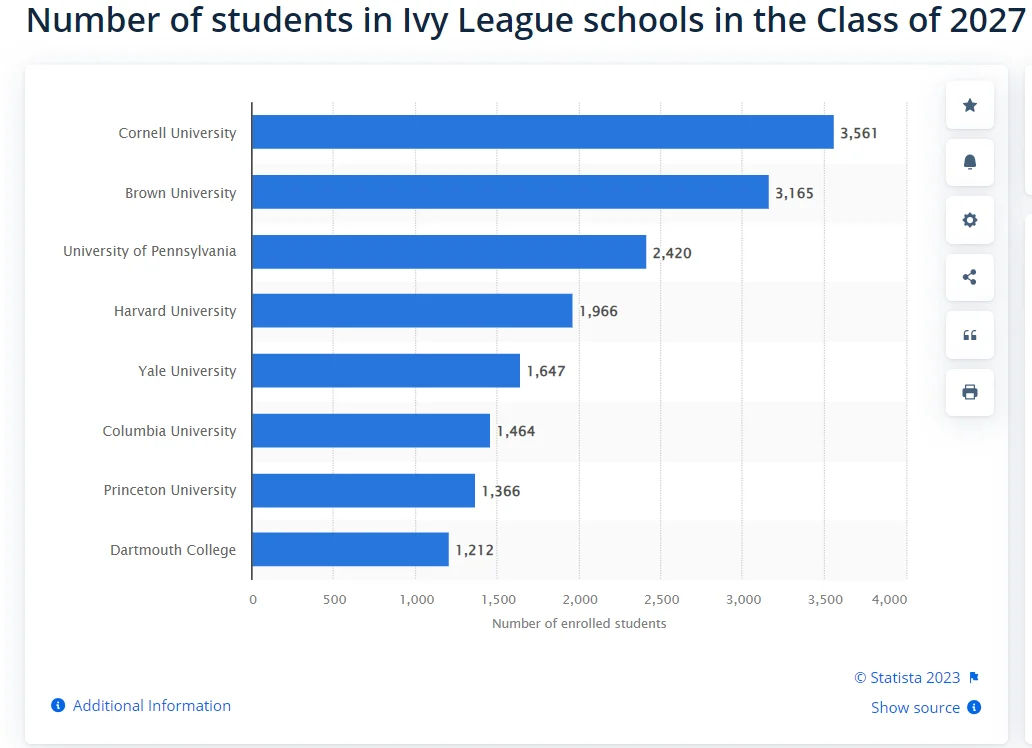
Securing admission to an Ivy League institution is a journey where character, commitment, and genuine curiosity pave the path to academic excellence. It's not just about the destination; it's about the transformative journey within:
Michelle Obama
Update: This article was last updated on 28th November 2023 to reflect the accuracy and up-to-date information on the page.
Introduction
As an aspiring student seeking Ivy League admission, crafting a convincing Statement of Purpose (SOP) is critical. This blog will provide 10 essential recommendations for producing an amazing SOP showcasing your unique credentials, experiences, and motivations.
Moonpreneur
These tips by Moonpreneur will assist you in developing a focused and persuasive SOP that will help you stand out in the competitive admissions process, from stressing your academic achievements and extracurricular activities to demonstrating your research ability and love for your chosen field of study.
TIPS FOR SOP FOR COLLEGE ADMISSION IN IVY LEAGUE
1. Use Stories, Not Just Statement:
-Tell stories about your life in your application.
-Make sure your story flows smoothly.
-Start with an anecdote to grab attention.
2. Be Specific:
-Don’t just write a good story; include details about yourself.
-Avoid generic statements like “I want to change the world.”
3. Make It Personal:
-Customize your essay for each university.
-Align your essay with the university’s culture and vision.
4. Balance Formality:
-Use a formal tone but don’t be overly serious.
-A little humor is okay, but don’t overdo it.
-Be witty but stay focused on your goal.
5. Stay Original:
-Don’t make up stories; be genuine.
-It’s okay to have an ordinary life and write ordinary stories.
6. Address Setbacks Positively:
-Be honest about academic challenges.
-Explain how you overcame setbacks and what you learned.
7. Thorough Research Matters:
-Research each university thoroughly.
-Show genuine interest in the specific university.
8. Proofread Carefully:
-Your statement represents you, so avoid mistakes.
-Check for grammar errors and clarity.
-Get feedback from friends and family for improvement.
9. Take Feedback:
-Feedback from family and friends will help you in making it perfect.
Let’s start creating an SOP that will wow Ivy League admissions committees!
1. Start with a clear introduction
A compelling opening is essential for drawing the admissions committee’s attention and establishing the tone for the remainder of your SOP. Your introduction should be understandable, succinct, and interesting.
It should also offer the reader a feel of who you are and what you intend to accomplish by attending an Ivy League school.
You can begin with a brief introduction and outline the purpose of your SOP, which is to highlight your credentials and reasons for pursuing higher education at one of the world’s most prominent academic institutions.
Recommended Reading: How To Prep for College Admission Over Summer Break
2. Highlight your academic achievements

The admissions committee is looking for evidence that you’ve excelled in school and have taken challenging subjects that have equipped you for college-level work.
Your total GPA and any honors or prizes you have won during your school years should come first. Scholarships, dean’s lists, and other academic accomplishments that distinguish you from your peers may count. It’s crucial to contextualize your accomplishments rather than just listing them out.
3. Emphasize your extracurricular activities

Your involvement in extracurricular activities can demonstrate your aptitude for leadership, creativity, and teamwork. They can also reveal your values and show admissions committees a side of you that goes beyond your academic prowess.
So, you must highlight your extracurricular activities in your SOP that are pertinent to your educational objectives and the program you are applying for.
You might discuss how joining groups, sports teams, volunteering, or engaging in other activities has helped you develop abilities and traits that fit the program’s standards.
4. Show your passion
When talking about your interest, it is critical to be genuine. Avoid any cliched language or attempting to appear as someone you are not. Instead, discuss your personal experiences and how they have affected your hopes and goals. By outlining your future academic and professional goals, you can further illustrate your passion.
Describe in detail the courses, programs, or research possibilities that interest you and how they relate to your long-term objectives. This will demonstrate your deep understanding of the subject and your commitment to achieving your academic and professional goals.
Recommended Reading: What do Colleges Look for Besides Grades?
5. Demonstrate your research skills
You can discuss your project’s research topics, techniques, and findings and any difficulties you encountered and how you overcame them. This will demonstrate to the admissions committee your aptitude for independent work and research skills. Additionally, explain any coursework you have completed that was linked to research and emphasize particular abilities or methodologies you have learned during the process.
Make a point of connecting this data to your academic and professional objectives, highlighting how your research abilities will benefit you in your chosen field.
6. Explain any gaps or weaknesses
A successful SOP for college admission to an Ivy League institution must address gaps or deficiencies in your academic or personal background. Admissions committees are aware that not every student has a flawless academic record, and they value applications that are open and truthful about any gaps in their records or other areas of weakness.
So, address academic problems you may have faced, such as a low GPA or a difficult semester. Explain the shortcoming, including personal struggles, a lack of acquaintance with the subject, etc.
7. Showcase your unique perspective
You can discuss any abilities or skills that set you apart from the competition. This might be a singular interest, a creative talent, or unique quality. Talk about the impact this ability or skill has had on your academic and personal development, as well as how it can help the Ivy League community.
It is crucial to draw attention to instances where you have shown leadership potential or a capacity for productive teamwork. This could be a project you oversaw, volunteer work, or a leadership position in a group or club.
8. Discuss your long-term goals
Whether it’s a research field you have studied before or a subject you plan to explore further while attending an Ivy League school, it’s essential to explain how this area of interest aligns with your long-term career goals.
Discuss how you plan to continue developing your research skills at the Ivy League institution and highlight how your degree from an Ivy League school will support your future career aspirations.
9. Keep it concise and focused

To keep your SOP focused and concise, it can be helpful to identify and prioritize the experiences, accomplishments, and goals you want to highlight. By outlining your key points, you can ensure that your SOP stays on topic and effectively communicates your qualifications and aspirations.
Furthermore, express your views using language that is clear and simple. Avoid using technical or jargon-filled language that the admissions committee might not understand. Finally, be sure to modify and proofread your SOP carefully.
10. Get feedback
To improve the quality of your SOP, seek feedback from trustworthy mentors, family members, and friends. They can provide valuable insights into the effectiveness, clarity, and persuasiveness of your SOP. Another option is to use expert feedback services provided by various groups and companies.
These services can offer in-depth analysis of your SOP’s organization, content, and language, along with suggestions for improvement, which can increase your chances of being accepted to Ivy League institutions.
FAQs
1. Which Ivy League is easiest to get into?
Ans. Cornell is thought to be the “most accessible” Ivy League school because it accepts a higher percentage of applicants compared to other Ivy League schools. Even though it’s considered easier to get into Cornell based on statistics, it’s still not easy. Also, keep in mind that students need to apply specifically to one of Cornell’s eight undergraduate colleges.
2. Why does everyone want to go to an ivy?
Ans. Ivy League schools are seen as the ultimate destination for higher education. People think they’re great not just for academics but also because students often get good jobs after they graduate from these schools.
3. What does a good personal statement look like for college?
Ans. A strong college personal statement should show how your background connects to your university’s program and your goals. It needs to explain how the things you bring to the table—like your skills, resources, and background—fit with what your school is all about.
Conclusion
Writing a compelling SOP for Ivy League admissions requires careful planning, attention to detail, and consideration. A strong SOP can make or break your Ivy League dreams. To impress the admissions committee with your achievements, goals, and unique perspective, follow these ten tips.
Moonpreneur offers STEM programs in robotics, game development, app development, and other futuristic sciences to help students build top-notch profiles and pursue their passion projects. Start your journey to success today!
















